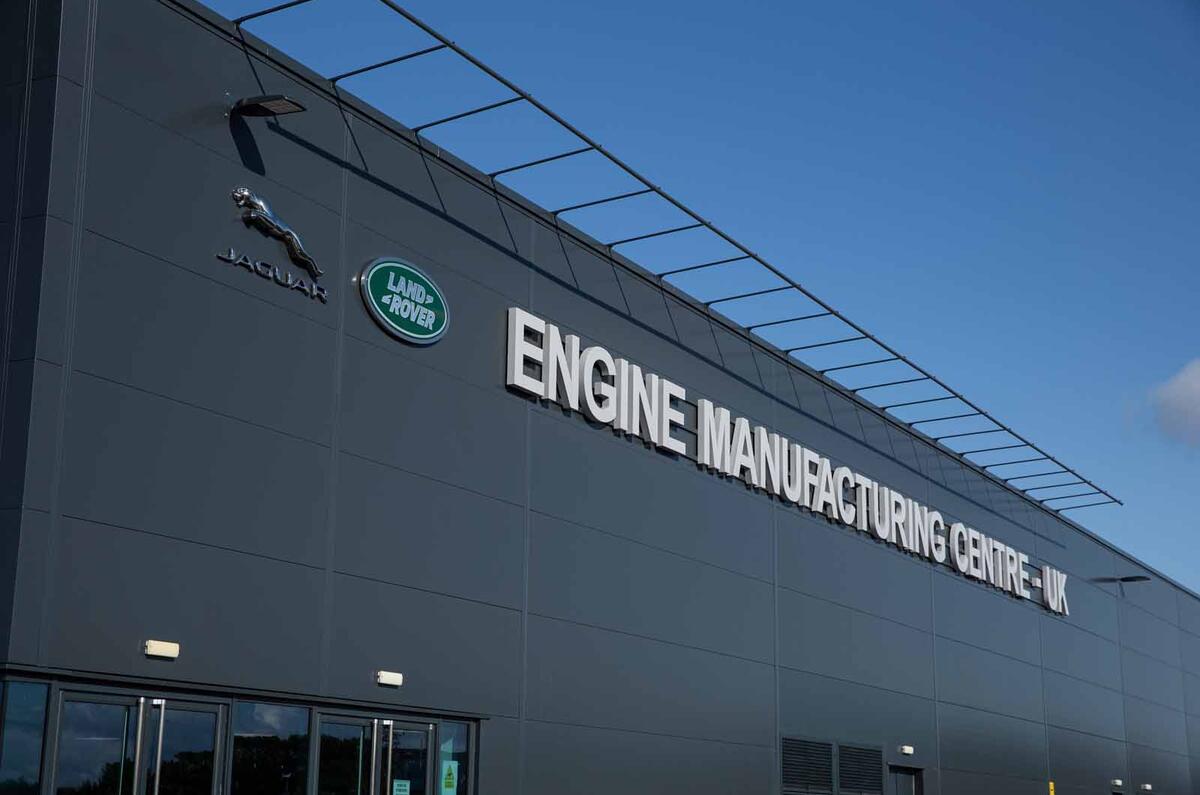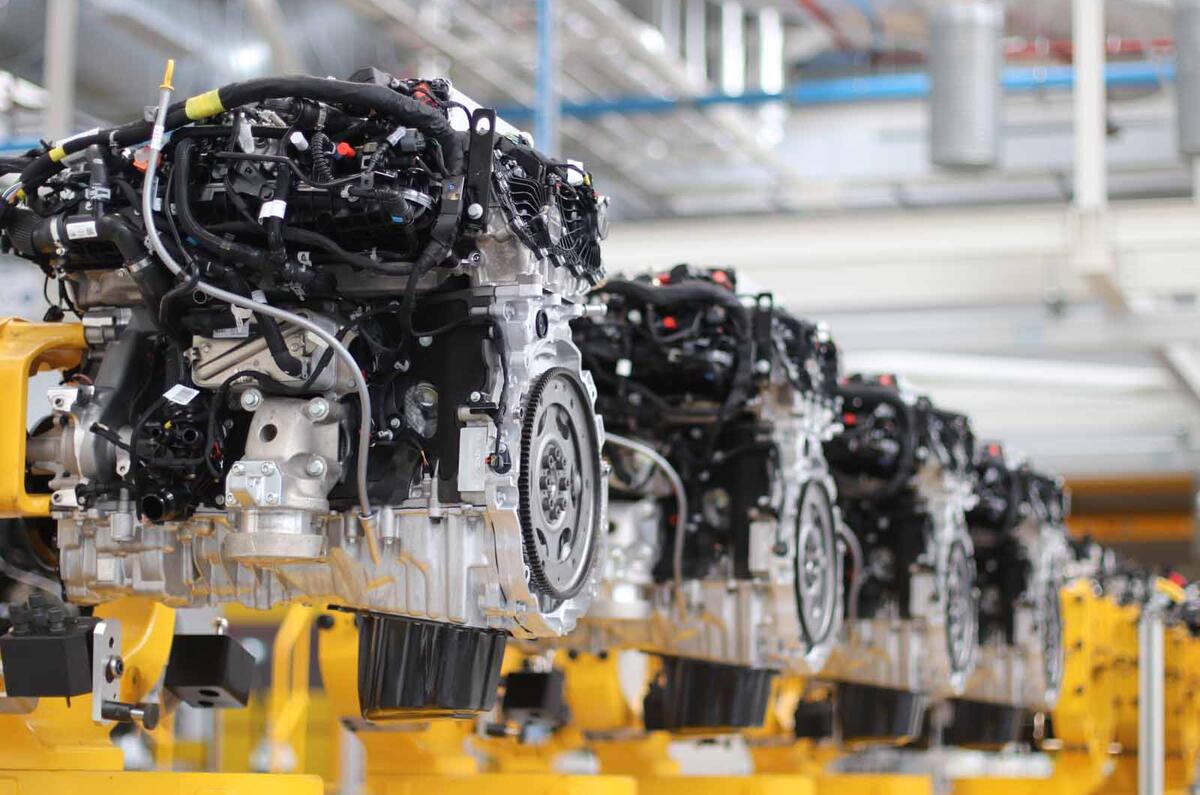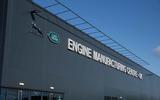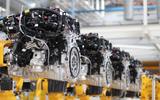Jaguar Land Rover is marking a positive milestone, having now produced more than 1.5 million Ingenium engines at its UK manufacturing plant.
Developed in-house and produced at the maker’s £1 billion engine manufacturing facility in Wolverhampton, West Midlands, the first example of the new engine family rolled off the line in 2015.
Initially, just one four-cylinder diesel engine was produced, with a four-cylinder petrol joining in 2016. Since then, a straight-six petrol has also been produced there, replacing the old Ford-sourced V6, and a mild-hybrid straight-six diesel was announced earlier this week. Since the Jaguar I-Pace was launched, the facility has also been assembling electric drive units.
The Wolverhampton site is being adapted to facilitate further electrification and propulsion methods as well. JLR said it “will continue to develop Ingenium technology, continue to advance the electrification of its model line-up and establish a concept hydrogen fuel cell powertrain solution”.
A “growing electrification ecosystem” has already been established by the firm. Located 25 miles away in Hams Hall, Birmingham, a newly established battery assembly centre makes packs for both pure-electric and plug-in hybrid models.
JLR has two design and engineering sites, three vehicle manufacturing facilities and two powertrain assembly plants in the UK. It also has vehicle factories in China, Brazil, India, Austria and Slovakia. More than 557,000 JLR models were produced globally in 2019.
READ MORE:
Jaguar Land Rover: behind the doors of its Wolverhampton engine plant
The car industry now: how will Jaguar Land Rover look after the crisis?







Join the debate
Add your comment
Makes a change............
from Ford Motors closing down UK plants, including the Bridgend engine plant, to import engines from Romania, even Mexico (and the EcoBoost, with it's serious, expensive, failures). Ford successfully build very good diesel engines at Dagenham, but the high volume Transit engine is transferring to Ford-Koch JV Transit build plant in Otosan, Turkey - which gives Ford to opportunity to calim that the Dagenhma engine plant is "no longer viable", close it down, sell the no valuable and for house-building.
The Igenium engines have
The Igenium engines have improved a lot since they were first launched. They are now much more refined.
I do get sick of people calling JLR products unreliable. Statistically Jaguar's are beating Audi but we never hear people say that. The truth is the more you load a car up, the more complex you make them the more unreliable they become. So of course a Toyota will beat a Land Rover, it will also beat Mercedes, BMW and Audi.
JLR is on an absolute roll
This company is an absolute industrial leader. They are correct that the shift towards electrification is not for everyone, more importantly, not many people can at the moment afford expensive EVs.Corona wrecking the european economy also puts a stunts the growth of the expensive premium EV market.Clean engines are the way to go for the forseeable future.And also all those complaining that autocar is advertising on behalf of JLR, let me tell you, Autocar also reviews worthless brands like Volvo and all their chinese made, owned and operated companies that cant even make a seatbelt properly anymore and recalls millions of fairly new vehicles per year.Autocar is a fair reviewer of the automotive industry, and at this point in time, JLR sits at the top of the automotive industry as one of its most important leaders.